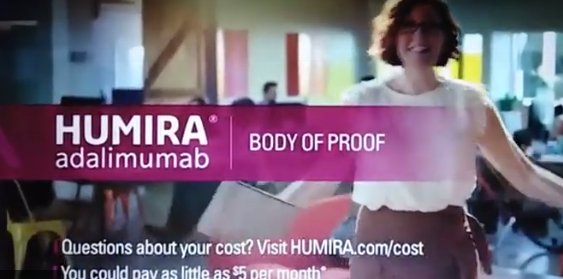Pharma Company Accused of Using Legal Tricks to Squash Generic Version

Last October, we wrote about the tactics used by pharma company AbbVie to artificially extend its patents on its billion-dollar drug Humira. Now six groups are filing lawsuits against AbbVie for “anticompetitive conduct.”
Humira is a rheumatoid-arthritis and gut-disorders drug that enjoys sales of around $18 billion a year. One of its patents was set to expire recently, and this would have opened up the market to less-expensive generic biosimilars.
The six plaintiffs include the biggest union of grocery workers in New York, the City of Baltimore, and four health plans. They accuse AbbVie of developing a scheme to thwart competition of biosimilar generics.
“AbbVie’s sole purpose has been to create a patent thicket that unlawfully deters lawful competition,” The City of Baltimore’s complaint wrote.
Among its tactics, AbbVie used a known trick in intellectual property. They repeatedly filed numerous, carefully timed, continuation applications on their original IP — not to patent anything new about their drug, but to buy time. Filing continuation applications allowed AbbVie to layer on redundant applications. This artificially extended the life of their patent, allowing the company to sell more Humira over the years. It also built flimsy patent walls to obscure matters for the competition.
“The more patents—valid or not—a competitor had to wade past, the longer AbbVie could keep competition for Humira at bay and, thus, the longer Humira could command supra-competitive prices. AbbVie has filed more than 240 patent applications and obtained over 100 patents purportedly covering Humira.” (2.)
The city of Baltimore’s suit pointed out that the USPTO had invalidated many of the Humira patents.
In the suit, the plaintiffs also accuse AbbVie of making a deal with eight other drug companies to “delay biosimilar entry in the U.S. until at least 2023,” resulting in an “anticompetitive scheme to restrain competition in the market for Humira.” (1)
The type of deal AbbVie made is called “pay for delay.” It’s when big pharmaceutical companies pay generics manufacturers not to produce a generic version of their drug.
Another tactic AbbVie used was obstruction of FDA proceedings. They filed “citizen petitions” in 2012 that aimed to delay FDA action on Humira. Citizen petitions are avenues through which people may express concerns about the safety, scientific, or legal issues about a product, before or after its sale.
“Such citizen petitions purport to raise legitimate concerns about the safety or efficacy of generic products,” said the Baltimore suit, “but instead only seek to preserve monopolies after the end of a statutorily-granted patent or FDA exclusively period.” (2.)
Pharmaceutical companies are well aware that responding to citizen petitions takes time and resources. It is a lengthy process; an FDA team gets 180 days to research the petition’s issues and develop a response. So by filing a “citizen’s petition” the pharma companies buy time, slowing FDA approval of competitors’ drugs.
And the suit on behalf of New York grocery workers’ union pointed out that while AbbVie’s stall tactics made the company more money, consumers were stuck paying monopoly prices.
“Had AbbVie not engaged in anticompetitive conduct, the plaintiffs would have been able to purchase Humira biosimilars in the U.S. as early as January 1, 2017, the expiration of Humira’s primary patent, at significantly lower prices.” (1.)
The Baltimore suit said it too: “They paid and will continue to pay artificially inflated prices for Humira and were and continue to be deprived of the benefits of competition as a result of AbbVie and Amgen’s conduct.” (2.) (Amgen was the company from which AbbVie bought the IP).
Pharmaceutical company executives are proud of these tactics. At a 2014 Healthcare Conference, AbbVie’s Executive VP of Finance and Administration Bill Chase said that AbbVie’s IP strategy “is designed to make it more difficult for a biosimilar to follow behind you and come up with a very, very similar biosimilar.”
Had AbbVie not engaged in anticompetitive conduct, the plaintiffs would have been able to purchase Humira biosimilars in the U.S. as early as January 1, 2017, the expiration of Humira’s primary patent, at significantly lower prices,” Labaton Sucharow LLP said, after filing a class action lawsuit on the fund’s behalf. (1.)
Read the backstory on Humira.
Citations and Sources:
(1) https://www.labaton.com/hubfs/Filed%20Humira%20Complaint.pdf
(2) https://law.baltimorecity.gov/sites/default/files/Complaint%20-%20Mayor%20v%20Abbvie.PDF
https://www.raps.org/news-and-articles/news-articles/2019/4/six-lawsuits-target-abbvies-humira-and-its-patent
http://www.intellectualpropertylawfirms.com/resources/intellectual-property/patents/continuation-and

1 thought on “Six Lawsuits Filed Against Humira Maker”